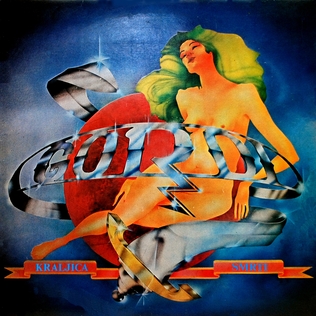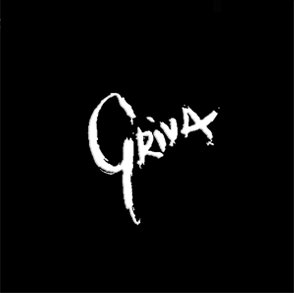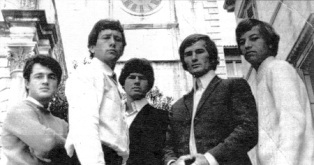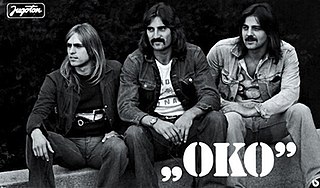
Galija is a Serbian and Yugoslav rock band formed in Niš in 1977.

Gordi were a Yugoslav rock band formed in Belgrade in 1977.

Warriors is the first studio album by Yugoslav/Canadian heavy metal band Warriors, released in 1983. It is the band's first self-titled album, the second being their second album, released in 1984.

Deep Purple Tribute is the second live album by Serbian hard rock band Cactus Jack, recorded as a tribute album to British hard rock band Deep Purple and released in 2003. The album was released on two discs featuring 12 covers of Deep Purple songs.

Kraljica smrti is the fifth and the last studio album by Yugoslav rock band Gordi, released in 1982.

Pakleni trio is the fourth studio album by Yugoslav rock band Gordi, released in 1981. Pakleni trio was the band's first album to feature heavy metal sound, for which Gordi are mostly remembered.

Čovek is the 1978 debut studio album by Yugoslav rock band Gordi.

Gordi 3 is the third studio album by Yugoslav rock band Gordi, released in 1981. Gordi 3 is the band's last progressive/hard rock-oriented album before their switch to heavy metal with the album Pakleni trio.

Dah was a Yugoslav and later Belgian progressive rock band formed in Belgrade in 1972.

Ja eventualno bih ako njega eliminišete is the second studio album by the Serbian punk rock band Atheist Rap, released by PGP-RTS in 1995. The album, previously available only on compact cassette, was re-released by Hi-Fi Centar, featuring bonus material. The album title is an acronym for "jebanje" ("fucking")

Griva, also known as Vojvodino, Vojvodino, što si tako ravna after its biggest hit, is the third studio album by Serbian and former Yugoslav hard rock band Griva, released in 1987.

Kozmetika was a Yugoslav new wave/art rock band formed in Belgrade in 1978. Kozmetika were one of the pioneers of the Yugoslav new wave scene, as well as promoters of the Yugoslav new wave culture through their pop culture magazine Izgled.

Džentlmeni were a Yugoslav rock band formed in Belgrade in 1966.

Opus was a Yugoslav progressive rock band formed in Belgrade in 1973. Opus was a prominent act of the 1970s Yugoslav rock scene.

Kozmetika is the only album by the Yugoslav new wave/art rock band Kozmetika, released in 1983.

Ruž was a Serbian and Yugoslav pop rock band from Belgrade.
Zlatko Manojlović is a Serbian guitarist and singer. He is known as the leader of the progressive rock band Dah and the heavy metal band Gordi, as well as for his eclectic solo work.

Opus 1 is the debut and only studio album by Yugoslav progressive rock band Opus, released in 1975.

Dogovor iz 1804. was a Yugoslav rock band formed in Belgrade in 1968. Although short-lived, the band is notable as one of the pioneers of the Yugoslav progressive and psychedelic rock scenes.

Oko was a Slovenian and Yugoslav hard/progressive rock band formed in Ljubljana in 1972. Formed and led by guitarist and vocalist Pavle Kavec, Oko was a prominent act of the Yugoslav rock scene in the 1970s.



















